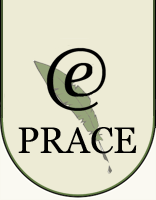
THE ORIGIN OF SOCIAL POLARISATION IN THE AMERICAN SOUTH.
The society in the American South was very strongly polarized. The line of demarcation was drawn between white Protestants (identified with masculinity, hardness, sexual purity, intellect, domination) and Catholicism, femininity, belonging to a particular race (associated with weakness, sexual promiscuity, chaos, filth and darkness). It should also be noted that the dark skin colour was synonymous with sin.25
The social order was part of the Puritan ethos that shaped the American way of thinking:
Puritans divided their time between hard work and discussions on church matters, praying and working, because they believed that each work brings honour. They developed, the Protestant burghers rule brought in from overseas, that fruits of the work are evidence of God's blessing. They began to identify wealth with an evidence of God's grace, and consequently poverty seemed to indicate God's disapproval. At the same time, the temporal world was for them "valley of tears". (...) Puritans treated the issue of salvation very seriously and devoted a large part of their free time for a thorough analysis of their thoughts, exploring ruthlessly the most private secrets. Going to church, praying and listening to sermons describing the wrath of God (who holds the sinners on the edge of hell and is ready at any time to knock them into burning hell), was part of their daily ritual, which included, as well, saving the everyday events and thoughts in diary, which was a book of account of their souls. They were also interested in the souls of their neighbours. The situation of people in closely related societies, which are adhered to the principle of neighbourhood solidarity led to intolerable meddling in other people's lives, and the small-town narrowness of mind.26
Light in August is a critique of a society based on the protestant ethic and religious fundamentalism.27 This patriarchal attitude is most fully expressed by Euphues Hines character, who considering himself as an instrument of God's will, leads to his daughter's death, kills her partner and turns his grandson's life in a living hell, by sending him to an orphanage, where he takes a job as a janitor to be able to watch and hate his daughter's son. In doing so, he stigmatizes Joe Christmas in the eyes of other children while excluding him from the white community. As a result, the children in the orphanage begin call him "Nigger" (with one of the few words for strangeness available to them). Hines does it all, because he believes in the superiority of white race, men over women and the patriarchal society, but also because: "weak people with low moral values always need a scapegoat. It makes them feel strong and superior" 28 The scene in which Doc Hines causes his daughter's death (not allowing a doctor to come), also indicates that the stronger in that community has the power of life and death over the weaker.
The very moment when McEachern, Christmas' foster father, gives him a heifer, which is "owns under God's sufferance,"29 is in fact a symbol of domination which has its source in a perverted Christianity. Changing Christmas' name, McEachern tries to impose his values (faith and work ethic) on him. As the values are more important than the child taken from an orphanage, it is impossible for the child to identify with the values. What is more, at this stage Christmas has already known about his uncertain origin, whilst the values belong to the white Protestant community.
According to the criteria of today's reality, the McEacherns family is deeply dysfunctional, but as the fundamental unit of society, is its miniature model. The strict division into: female - male, weak-strong, and the absolute patriarchal rules performed by the father of the family, where every attempt of disobedience leads to corporal punishment (flogging, which is linked to slavery) - is an image of society in which the protagonist tries to find his place.
Joanna Burden is another character in the novel who, like McEachern and Hines, uses religion in order to impose her dominance. Her attempt to force Joe to kneel at gunpoint "I don’t ask it. It’s not I who ask it. Kneel with me."30, leads, as a result, to her death. For Christmas it was probably something of a deja vu - back to the ruthless world of his childhood. A similar scene with McEachern shows the suffering of abused child who has never known love, and whose character was regularly broken by the people for whom he was just a thing:
‘Kneel down’, McEachern said. The boy knelt; the two of them knelt in the close, twilit room: the small figure in cutdown underwear, the ruthless man who had never known either pity or doubt. McEachern began to pray. He prayed for a long time, his voice droning, soporific, monotonous. He asked that he be forgiven for trespass against the Sabbath and for lifting his hand against a child, an orphan, who was dear to God. He asked that the child’s stubborn heart be softened and that the sin of disobedience be forgiven him also, through the advocacy of the man whom he had flouted and disobeyed, requesting that Almighty be as magnanimous as himself, and by and through and because of conscious grace[...]31
Christmas frees himself from McEachern killing him, and he does the same with Joanna.
komentarze
Copyright © 2008-2010 EPrace oraz autorzy prac.